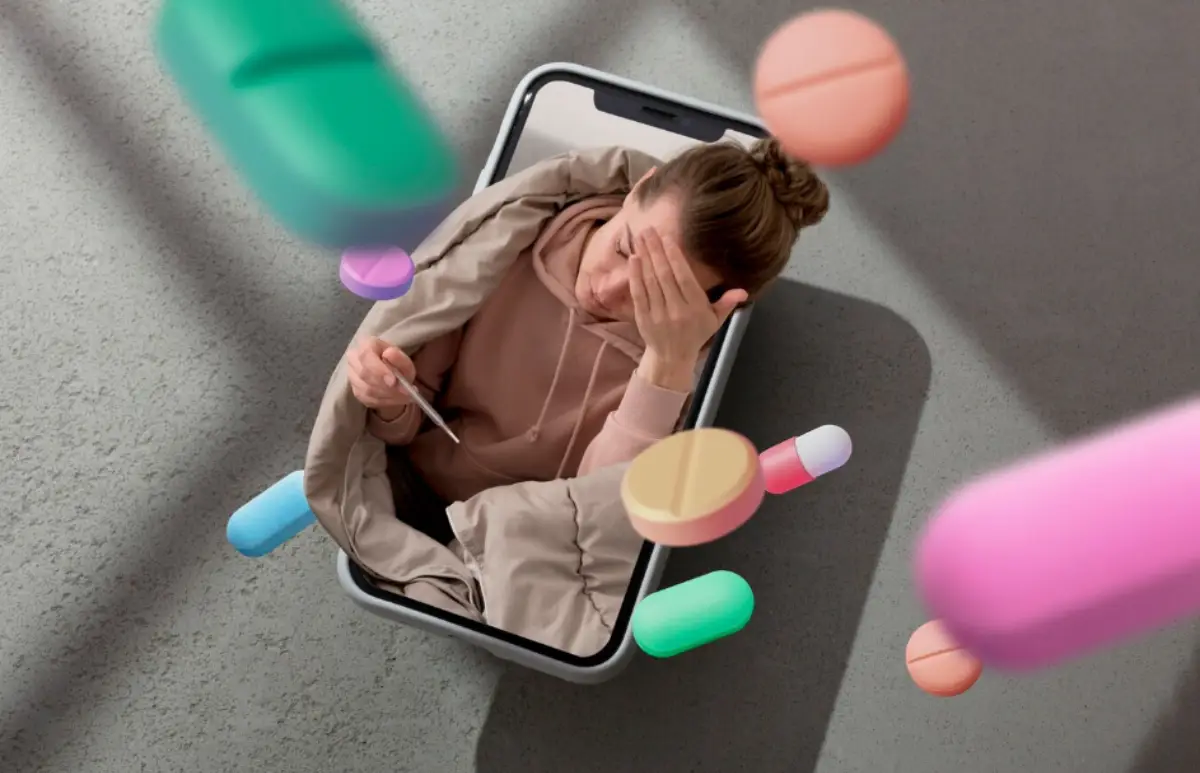Psychedelic
The Hidden Realities of Psychedelic Misuse
Psychedelics have long been associated with exploration, creativity, and the pursuit of deeper meaning. Substances such as LSD, psilocybin, and DMT are often used with the hope of unlocking insight, emotional release, or connection beyond the ordinary. Yet what begins as curiosity or a search for renewal can gradually unravel into disorientation, instability, and consequences that ripple through mental health, relationships, and professional life.
For high-functioning professionals, parents, and those navigating complex demands, psychedelic misuse may remain concealed behind stability and achievement. Episodes of altered perception, mood swings, or emotional detachment often unfold quietly, leaving loved ones uncertain and the individual struggling in silence. The unpredictability of these substances makes misuse especially dangerous, with risks compounding when combined with alcohol or other drugs.
At Legacy Healing Center New Jersey, we recognize that recovery from psychedelics requires more than stepping away from the substances themselves. It calls for restoring clarity, balance, and stability while safeguarding dignity and privacy at every stage of care.
The Impact of Psychedelics on Mind, Mood, and Stability
Psychedelics influence the brain primarily by altering serotonin pathways, which regulate mood, perception, and cognition. The result is a dramatic distortion of reality: time stretches or collapses, emotions heighten, and sensory input becomes overwhelming or unreal. While some individuals initially experience euphoria or insight, others face anxiety, paranoia, or frightening hallucinations.
Over time, repeated use can erode emotional stability and exacerbate underlying vulnerabilities such as depression, anxiety, or trauma. Unlike stimulants or opioids, psychedelics may not create classic physical dependence, but their unpredictable and destabilizing effects can lead to profound psychological dependence and disruption of daily life.
Common Psychedelics and Their Risks
The category of psychedelics spans natural compounds and synthetic chemicals, each carrying unique risks. Though often viewed as less addictive than other substances, the psychological consequences can be just as destructive.
- LSD (Lysergic Acid Diethylamide): Long-lasting hallucinogen that alters perception for up to 12 hours. Risks include paranoia, panic attacks, and lingering anxiety after use.
- Psilocybin (Magic Mushrooms): Naturally occurring hallucinogen that produces euphoria, visual distortions, and shifts in mood. Aftereffects may include confusion, depressive symptoms, or emotional volatility.
- DMT (Dimethyltryptamine): Short-acting but extremely intense, DMT creates vivid hallucinations that can provoke fear and disorientation as often as feelings of transcendence.
- Mescaline (Peyote, San Pedro): Known for visual distortions and heightened emotions, mescaline use may cause nausea, mood swings, and lasting psychological strain.
- Synthetic Psychedelics (NBOMe, 2C family): Highly unpredictable and potent, these compounds carry elevated risks of seizures, cardiovascular stress, and toxic overdose.
The Psychological and Physical Effects of Psychedelics
The signs of psychedelic use are often less visible than other substances, yet the consequences can be just as severe. While some individuals appear more open or introspective at first, escalating use introduces volatility, unpredictability, and emotional strain. Recognizing the full spectrum of effects is essential to understanding when curiosity has shifted into harmful misuse.
- At Lower Doses: Heightened sensory perception, mood elevation, distorted sense of time, and intensified emotions.
- At Higher Doses: Hallucinations, paranoia, panic, or psychotic-like episodes with impaired judgment and risky behaviors.
- Aftereffects: Anxiety, depression, confusion, or flashbacks that re-emerge long after use.
- Toxic Reactions: Synthetic compounds can cause seizures, dangerously high body temperature, heart strain, or severe agitation requiring emergency care.
The Stages of Psychedelic Misuse and Instability
Dependence on psychedelics does not typically present as traditional physical addiction but instead evolves through reliance on altered states. What begins as experimentation can gradually develop into compulsive involvement, where functioning in reality feels increasingly difficult.
- Experimental Use: Driven by curiosity, social exploration, or self-discovery.
- Pattern Development: Increasing frequency of use as psychedelics become a tool for coping with stress, enhancing creativity, or escaping from challenges.
- Growing Instability: Emotional volatility, disconnection from daily responsibilities, and compulsion to repeat experiences despite risks.
- Compulsive Involvement: Psychological reliance on altered states, erosion of stability, and significant impairment in personal and professional life.
The Unique Risks of Psychedelic Addiction
While psychedelics are often portrayed as safer than other substances, the dangers are significant—particularly for individuals juggling demanding lives or underlying vulnerabilities. The risks are less about physical harm and more about the destabilizing impact on psychological health, judgment, and daily functioning.
- Psychological Vulnerability: Psychedelics can trigger psychosis, paranoia, or worsen pre-existing conditions such as anxiety and bipolar disorder.
- Cognitive and Emotional Instability: Mood swings, intrusive thoughts, and impaired decision-making may persist long after the drug’s effects fade.
- Impaired Judgment: Risk-taking behaviors while intoxicated may result in accidents, unsafe encounters, or legal consequences.
- Polysubstance Cycles: Many combine psychedelics with alcohol, cannabis, or stimulants to manage aftereffects, creating dangerous interactions and compounding risks.
The Real-Life Consequences of Psychedelic Misuse
For those balancing careers, families, and high-level responsibilities, psychedelic misuse rarely remains isolated. The destabilizing effects ripple outward, touching every aspect of daily life, from professional performance to personal relationships and physical well-being.
- Professional Consequences: Declining productivity, erratic behavior, or secrecy around use may undermine reputation and career standing.
- Cognitive Strain: Memory lapses, impaired focus, and slowed problem-solving can erode confidence and performance.
- Personal Struggles: Relationships often suffer from emotional detachment, mood swings, or unexplained instability.
- Physical Risks: Accidents, sleep disruption, malnutrition, or exhaustion often accompany prolonged misuse.
A Structured Approach to Psychedelic Recovery in New Jersey
Recovery from psychedelic misuse is about more than discontinuing use—it requires stabilizing emotions, restoring clarity, and addressing the underlying vulnerabilities that contributed to reliance on altered states. At Legacy Healing Center New Jersey, we provide comprehensive support tailored to each client, delivered with discretion and compassion.
- Detox Placement & Stabilization: While not always required for physical withdrawal, supervised environments provide safety and stability during episodes of paranoia, anxiety, or lingering distress.
- Residential Treatment Coordination: Partner facilities offer immersive care, with structured settings that address both emotional healing and the root causes of misuse.
- Partial Hospitalization Program (PHP): Daily intensive therapy combined with holistic practices, while evenings allow restorative time in private accommodations.
- Intensive Outpatient Program (IOP): Flexible yet structured therapy that integrates seamlessly with professional and family responsibilities.
- Outpatient Program (OP): Ongoing therapeutic support, relapse prevention, and accountability while living independently.
- Aftercare Planning & Alumni Network: Confidential alumni connections and wellness-focused events ensure recovery continues long after treatment.
Recognizing the Right Time to Seek Treatment
Because psychedelics are often framed as tools for growth or creativity, it can be difficult to recognize when use has become harmful. Yet the signs are clear when stability, relationships, or personal well-being begin to erode. Seeking help early can prevent deeper consequences and open the door to renewal.
- Using psychedelics regularly to cope with stress, trauma, or daily pressures.
- Experiencing paranoia, panic attacks, or hallucinations that disrupt normal functioning.
- Suffering from flashbacks or perceptual disturbances long after use.
- Hearing concern from loved ones about mood swings, detachment, or risky behaviors.
- Struggling to meet professional or personal responsibilities due to secrecy or inconsistency.
Restoring Balance, Clarity, and Renewal Beyond Psychedelics
Recovery from psychedelic misuse is not only possible—it can begin today with a single step. With the right care, the disorientation and instability of misuse give way to clarity, stability, and peace of mind.
At Legacy Healing Center New Jersey, we provide care built on discretion, compassion, and expertise, ensuring that every client across Morris County, Camden County, and surrounding areas like Edison, Jersey City, and Trenton feels supported and respected throughout their journey.
Call us at (732) 402-0352 or verify your insurance online. Every conversation is confidential, and the opportunity to reclaim balance and renewal is already within reach.
📞 Call Now: (732) 402-0352 | Contact Us | Admissions | Verify Insurance




